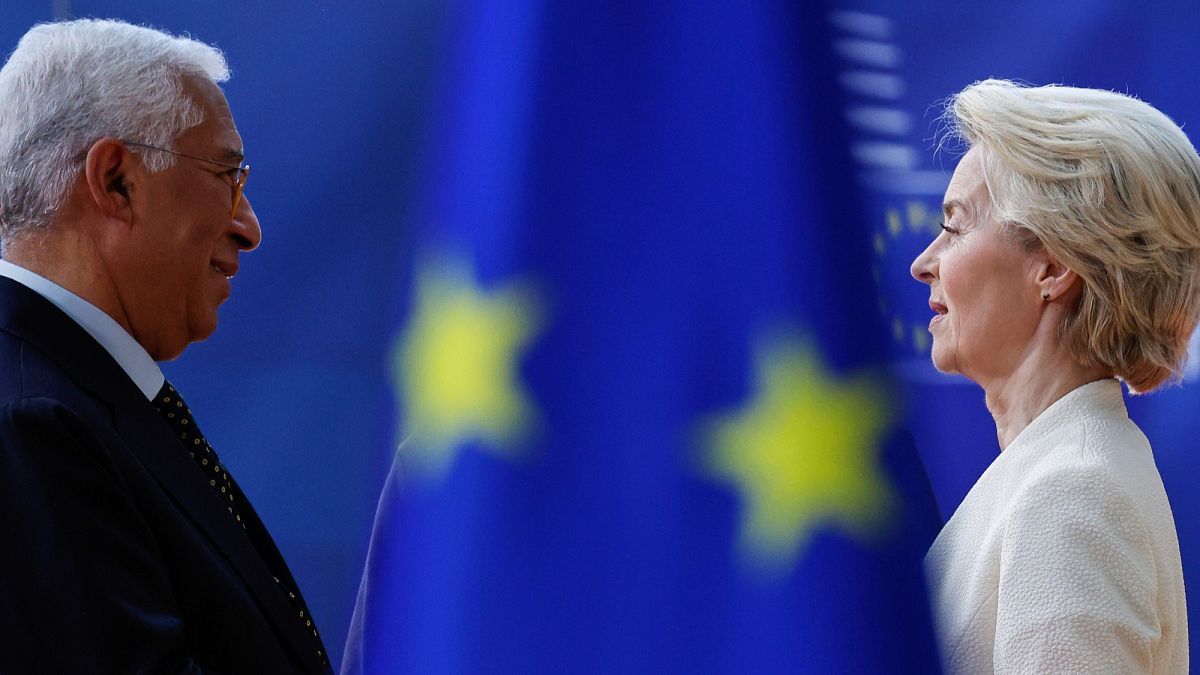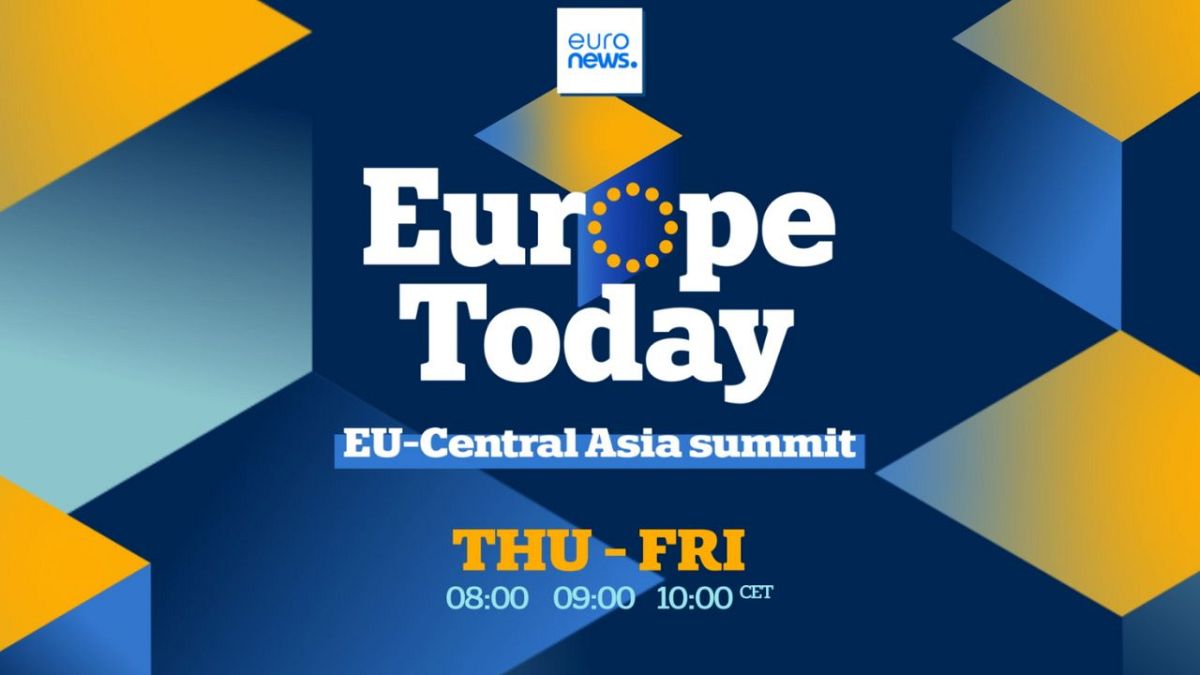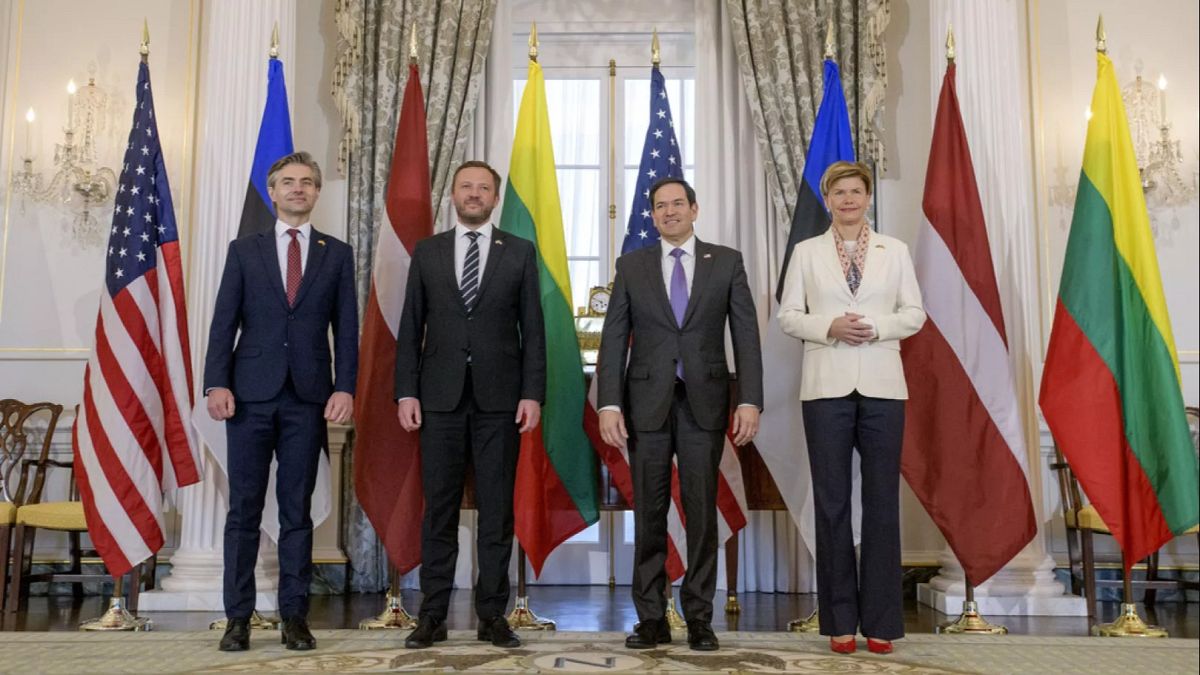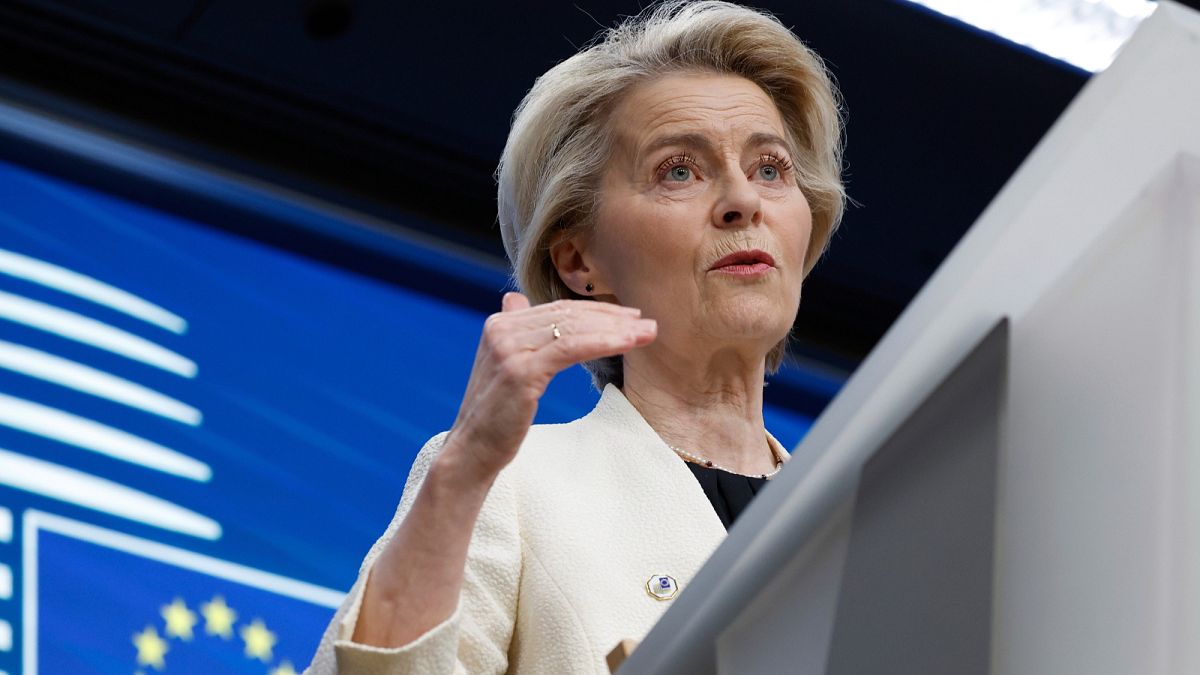Water, food, medicines... Hadja Lahbib, the EU Commissioner for Equality, Preparedness and Crisis Management recently presented a survival kit to be self-sufficient for 72 hours in case of a crisis.
It must contain photocopies of identification documents, cash, a radio with batteries, a charger and a phone battery, a flashlight, matches and a lighter in case of power failure, a first aid kit, water, food, and board games to pass the time.
“Of course all of us hope it's never gonna be something that we need, but even in situations with floods, with storms, with fires, whatever you have, it's not a bad idea to have some kind of preparedness,” Danish MEP (Renew Europe) Stine Bosse told Euronews.
'War hysteria'?
But the initiative, which is one of the Commission’s 30 recommendations to better prepare the Union for natural disasters, geopolitical conflicts or cyber attacks, has also been criticised.
The extreme right accuses Brussels of creating a climate of fear.
In the European Parliament, Kinga Gál, First Vice-Chair of the far-right group Patriots for Europe, goes so far as to denounce it as “war hysteria”.
"It is creating panic, it is creating fear, and it doesn't help anything because we don't have war in the European Union and I hope we won't have one at all", she told Euronews.
Survival manuals
However, the Commission’s initiative is not isolated and several European countries have already undertaken similar initiatives. Unsurprisingly, the countries closest to Russia seem to be the best prepared.
In January, Polish Defence Minister Władysław Kosiniak Kamysz assured that every household would receive a survival guide by the end of the year. In March, Deputy Minister of Interior Wiesław Leśniakiewicz specified that every citizen must be prepared to survive 72 hours without state assistance.
In Sweden, a bright yellow booklet entitled “in case of crisis or war” was updated and distributed to households on 18 November 2024. It explains how to take shelter during an air raid and how to make a survival kit.
In November 2024, the Finnish Ministry of the Interior published a new online guide to prepare citizens for “incidents and crises” in the event of long power outages, telecommunications interruptions, major weather events, or of a pandemic or military conflict. According to a survey conducted in September, 58% of the Finns have provided for emergency supplies at home in case of crisis.
"Preparing for threats will not make them any more likely to take place. Good preparedness means that people in Finland can combat threats together,” says Eriikka Koistinen, Director of Communications at the Ministry of the Interior.
In 2022, Lithuania launched a "knowledge saves" campaign to raise awareness of civil protection and prepare for extreme situations. The Minister of the Interior and the emergency services advised on how to prepare an emergency bag and keep it at hand.
In June 2024, Estonian households received a guide to safety in an emergency. This is an update to the “Be prepared!” guide released in 2022.
In Latvia, the National Defence Service has published an updated “What to do in a crisis” brochure so that households can manage on their own during the first three days of a crisis while waiting for essential services to be restored.
'Anything can happen'
Others are now taking inspiration from the Baltic and Scandinavian models.
The French government is preparing a booklet that outlines actions to be taken in times of crisis.
In 2023, a visual distributed by the French government already illustrated the contents of an “emergency kit” to last 72 hours in case of a “major disaster”. But unlike the Swedish manual, this survival kit was mainly intended to prepare citizens in case of floods and not in case of armed conflict, according to several French media.
In 2021, the German federal government also published the contents for a survival kit, following deadly floods and the Covid-19 pandemic.
In Belgium, the National Crisis Centre advises residents to obtain survival kits and register on the BeAlert site to receive alert messages. An awareness campaign to improve the resilience of the population is also in preparation.
In Spain, First Vice-President and Minister of Finance María Jesús Montero said that she works for peace while saying it is “logical” to prepare for the worst-case scenario.
"Anything can happen and in Finland where I come from we have always been used to think like this", Anna-Maja Henriksson, a Finnish MEP (Renew Europe) told Euronews.
"I believe people don't think that this is scary. I think the opposite because when you are prepared you also know that you will handle any situation that comes up", she added.

 23 hours ago
3
23 hours ago
3






 We deliver critical software at unparalleled value and speed to help your business thrive
We deliver critical software at unparalleled value and speed to help your business thrive






 English (US) ·
English (US) ·